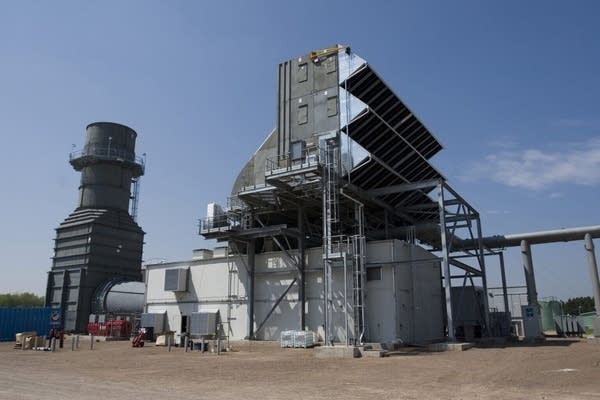Plan to convert Cambridge gas plant to burn diesel gets OK

Go Deeper.
Create an account or log in to save stories.
Like this?
Thanks for liking this story! We have added it to a list of your favorite stories.
State regulators on Thursday approved a plan to convert a natural gas plant in central Minnesota to burn diesel fuel oil.
Great River Energy operates the natural gas peaking plant in Cambridge, Minn., about 45 miles north of the Twin Cities. It acts as a backup supply of electricity during times of peak demand.
Great River applied to the state Public Utilities Commission for a minor permit alteration to convert the plant to also burn diesel fuel. The cooperative said the change would provide flexibility during times when natural gas isn't available or its price spikes.
The state Public Utilities Commission unanimously approved the request. Commissioner Valerie Means noted an analysis concluded the project will not significantly change the plant’s human and environmental impacts.
Turn Up Your Support
MPR News helps you turn down the noise and build shared understanding. Turn up your support for this public resource and keep trusted journalism accessible to all.
“I also think it just makes sense to have another mitigation tool in the event of another Winter Storm Uri,” she said, referring to the February 2021 ice storm across much of the U.S. that led to natural gas shortages and soaring prices.
Great River Energy supplies power to 28 member cooperatives in the Upper Midwest. It has reduced its use of coal and increased its wind and solar energy over the past several years, but says it needs peaking plants to maintain reliability during times when those resources aren’t available.
Environmental groups argued the Cambridge project is not a minor alteration, and should have to go through a more extensive review. They said burning diesel fuel oil will increase local air pollution and carbon emissions.
Hudson Kingston, legal director for CURE, or Clean Up the River Environment, called it a “huge step backwards” for Minnesota.
“The Legislature has said that by 2040, we’re going to have a clean energy system,” he said. “And now they’ve authorized the building and retrofitting of a plant that is going to run for at least 30 years burning dirty fuel oil.”
Kingston said other strategies, such as battery storage, are better ways to make sure electricity is available during times of peak demand.
Great River said it anticipates the plant will burn diesel fuel fewer than 24 hours a year. The Public Utilities Commission required the cooperative to report if it exceeds that amount within a year.
Dear reader,
Political debates with family or friends can get heated. But what if there was a way to handle them better?
You can learn how to have civil political conversations with our new e-book!
Download our free e-book, Talking Sense: Have Hard Political Conversations, Better, and learn how to talk without the tension.



